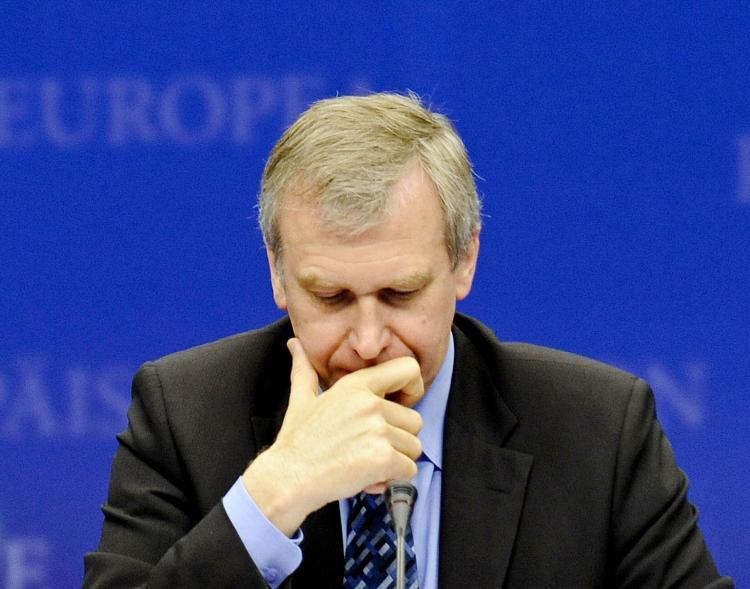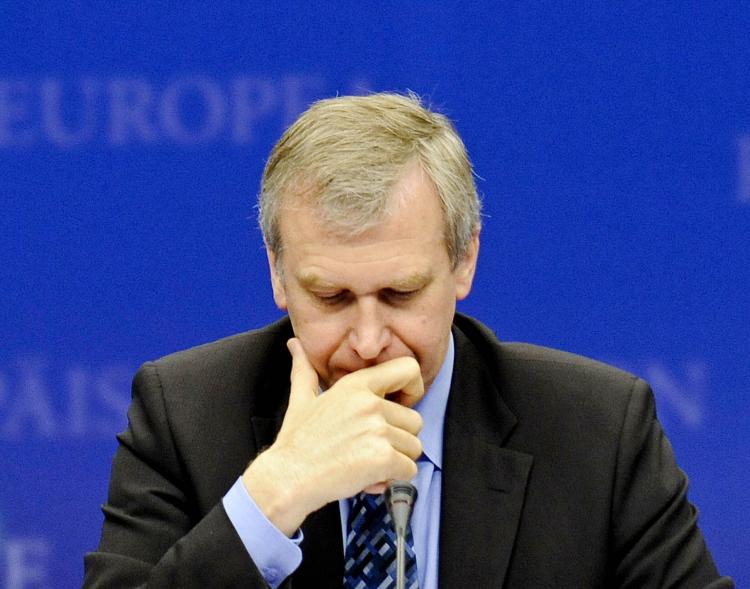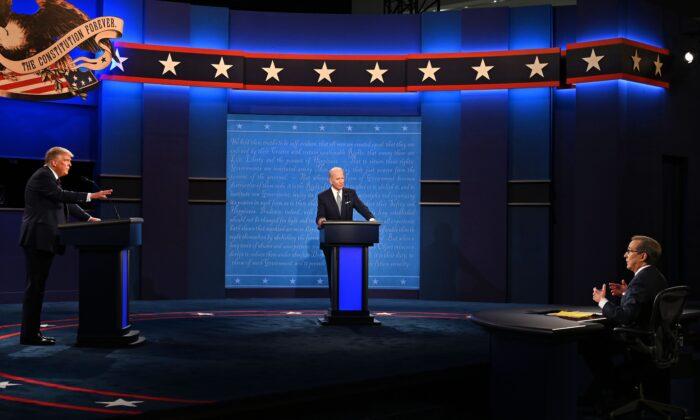A deeply politically divided Belgium will assume the rotating presidency of the European Union on July 1. With the collapse of the Belgium federal government earlier this year, the six-month presidency will be headed by a caretaker government. While this sounds like it could put the EU in an awkward bind, in practice it is expected to have little impact.
The first reason is that under the Lisbon Treaty that went into effect last year, the EU presidency has a much smaller role to play, while two new key posts—president of the European Council and the high representative of Foreign Affairs—hold much more power. The country holding the presidency is nominally in charge, and gets to head up key committees, but the role of “president” is not part of that.
The EU president is currently Herman van Rompuy, who happens to be from Belgium, and the U.K.’s Catherine Ashton, has the foreign affairs post.
The second reason is that given Belgium’s delicate political state, analysts do not expect to see much during their six-month term. “Belgium will be far less inclined to put its own accents or new accents forward,” says political science professor Jan Beyers.
“When you look at what [Belgium’s] priorities are, then you notice that it is very difficult to find the priorities,” said Beyers.
The EU’s new regulations give countries filling the rotating presidency little influence over policy-making. While there is still some room left to add a bit of national color, policies largely rely on directions set out by the European Commission, Europe’s governing body.
“It’s not that it is nothing, but far less extensive as before the Lisbon Treaty was enacted,” says Beyers.
Beyers also points out that among the political parties in Belgium there is a relatively strong consensus on European policies. “In Belgium, there are actually no euro critics or euro skeptical parties.”
Belgium’s political parties are currently in negotiations to form a government following national elections June 13. With deep political divisions between French and Dutch speaking parties, coalition forming in Belgium is traditionally a lengthy process.
Flemish politician Yves Leterme, is Belgium’s acting prime minister, and therefore in the leadership role in charge of Belgium’s presidency, and will assume the presidency July 1. If Belgium manages to form a new government in the next six months, then Leterme will be replaced.
“There is a risk of discontinuity ... It all depends on how efficient the transition will go,” Beyers said.
Part of the role of the EU presidency is to head 12 different councils such as agriculture, finance, and the environment. Half of these positions are required to be filled by representatives from Belgium’s two state level governments, which are still functioning normally.
A change in Belgium’s national government would only mean replacing the heads of six of the councils. But even so, since bureaucrats make most of the decisions, even a new head of council would not likely have a great impact, says Beyers.
During the Czech Republic’s presidency, their government also fell, and “had little impact,” says Beyers.
The first reason is that under the Lisbon Treaty that went into effect last year, the EU presidency has a much smaller role to play, while two new key posts—president of the European Council and the high representative of Foreign Affairs—hold much more power. The country holding the presidency is nominally in charge, and gets to head up key committees, but the role of “president” is not part of that.
The EU president is currently Herman van Rompuy, who happens to be from Belgium, and the U.K.’s Catherine Ashton, has the foreign affairs post.
The second reason is that given Belgium’s delicate political state, analysts do not expect to see much during their six-month term. “Belgium will be far less inclined to put its own accents or new accents forward,” says political science professor Jan Beyers.
“When you look at what [Belgium’s] priorities are, then you notice that it is very difficult to find the priorities,” said Beyers.
The EU’s new regulations give countries filling the rotating presidency little influence over policy-making. While there is still some room left to add a bit of national color, policies largely rely on directions set out by the European Commission, Europe’s governing body.
“It’s not that it is nothing, but far less extensive as before the Lisbon Treaty was enacted,” says Beyers.
Beyers also points out that among the political parties in Belgium there is a relatively strong consensus on European policies. “In Belgium, there are actually no euro critics or euro skeptical parties.”
Belgium’s political parties are currently in negotiations to form a government following national elections June 13. With deep political divisions between French and Dutch speaking parties, coalition forming in Belgium is traditionally a lengthy process.
Flemish politician Yves Leterme, is Belgium’s acting prime minister, and therefore in the leadership role in charge of Belgium’s presidency, and will assume the presidency July 1. If Belgium manages to form a new government in the next six months, then Leterme will be replaced.
“There is a risk of discontinuity ... It all depends on how efficient the transition will go,” Beyers said.
Part of the role of the EU presidency is to head 12 different councils such as agriculture, finance, and the environment. Half of these positions are required to be filled by representatives from Belgium’s two state level governments, which are still functioning normally.
A change in Belgium’s national government would only mean replacing the heads of six of the councils. But even so, since bureaucrats make most of the decisions, even a new head of council would not likely have a great impact, says Beyers.
During the Czech Republic’s presidency, their government also fell, and “had little impact,” says Beyers.







Friends Read Free